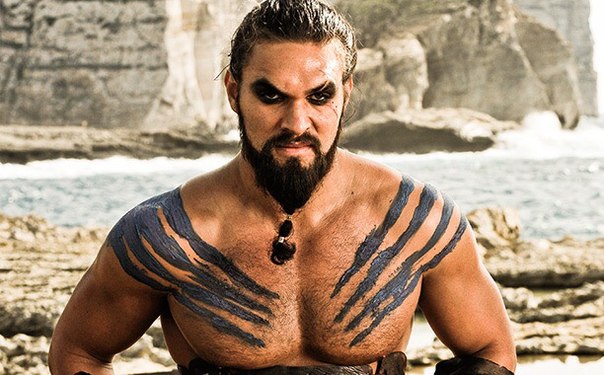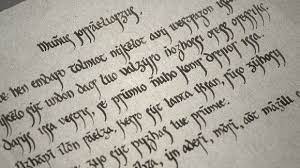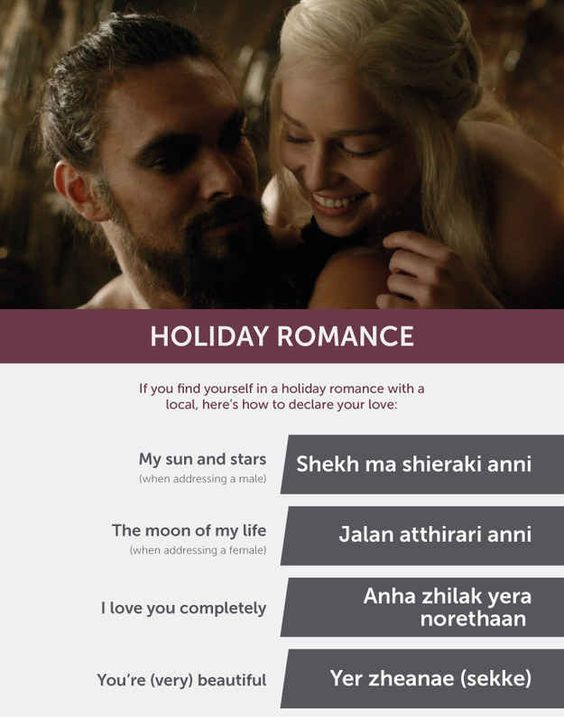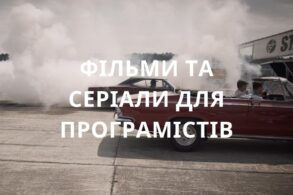
04 / 2016
Категорії: Interesting to know
How did a linguist turn the original 56 Dothraki words from the books into a language for HBO’s Game of Thrones?
The Common Tongue is spoken in Westeros, but that’s not the case across the Narrow Sea. Missandei’s translations for Daenerys and her entourage are the work of David Peterson, the linguist who created Dothraki, High Valyrian and multiple dialects of Low Valyrian. By his own estimate, Peterson has crafted over 5,000 words.
HBO: How did the culture of Essos influence you the languages you created?
David Peterson: Two major factors come into play.  First, the topography of the area, which helps determine what these people do and don’t have words for, and what their lifestyle is like. I think about these people and ask: “What are their lives supposed to be like?”, “Who do they interact with on a regular basis?” and “How do those interactions shape their own culture?”
First, the topography of the area, which helps determine what these people do and don’t have words for, and what their lifestyle is like. I think about these people and ask: “What are their lives supposed to be like?”, “Who do they interact with on a regular basis?” and “How do those interactions shape their own culture?”
The second factor is their level of technology. The world of ‘Game of Thrones’ is at a significantly lower level of technology than the modern world. And in the case of Dothraki, they are at a technology level that’s below even that. It seems that their culture is very insular. They don’t let their interactions with other people influence their lifestyle. What that said to me is that the Dothraki are going to have words for their own lifestyle, and they may borrow other terms. For example, the Dothraki word for “book” is borrowed from Valyrian.
HBO: Was your process similar for creating Valyrian?

David Peterson: Valyrian is a very different type of language. We don’t really have a window into the Valyrian culture at all. It’s one of the great mysteries in the book series. Furthermore, the culture and all of the speakers are now dead. The language has been handed down from generation to generation and it’s a fossil of a bygone era.
In that sense, it’s been difficult for me. Human experiences are always going to be roughly the same, so I can come up with words for how people feel and basic things like that, but I haven’t gone out on too much of a limb on the culture. I tried to stay away from things that describe daily life.
That isn’t the same with the Low Valyrian speakers. While they’ve inherited the language, they’ve also inherited some words from their own culture – Ghiscari. They’re a living people, so I can use what I know about Slaver’s Bay to inform the language a bit.
HBO: Can you give an example where High and Low Valyrian differ?
David Peterson: The Low Valyrian that the slavers speak takes a lion’s share of its vocabulary from High Valyrian, but most of the terms regarding the slave trade have been taken from Ghiscari. The word for “slave” in High Valyrian – which Daenerys would know –doesn’t look anything like the word for “slave” in Low Valyrian, and I did this on purpose to kind of distinguish the two. Back in Season 3, Daenerys she uses Low Valyrian word – “buzdari” – when speaking to the slaves: “Zaldrizes buzdari iksos daor,” a dragon is not a slave. It makes her point more forceful and makes sure that they absolutely understand what she’s saying.
HBO: Out of all the words you’ve created, do you have a favorite?
David Peterson: A lot of my favorites end up coming from High Valyrian because that language is just shamelessly pretty. It was completely indulgent. I’ll stick with the word for dragon: “Zaldrizes.”
Learn the most popular expressions of Dothraki:




